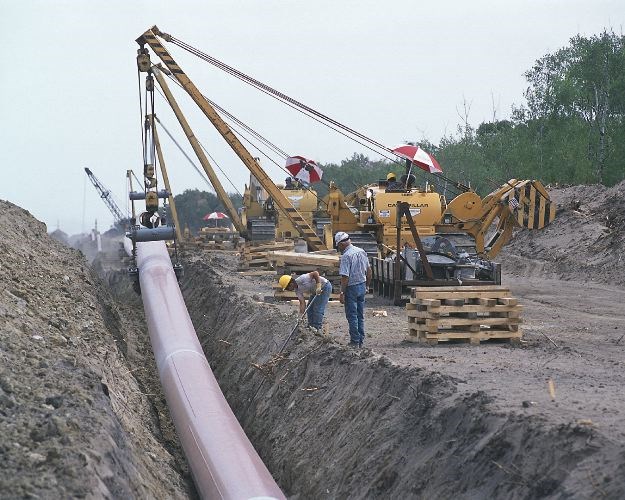Standing beside a small array of equipment that, to a layman, looked more suitable to power-washing your driveway than cleaning up after the Exxon Valdez, Canada's fisheries and oceans minister tried last Friday to soothe West Coast oil-spill fears.
"Our government understands that, in order to support a thriving economy and healthy coastal communities, we must ensure that our oceans and our marine ecosystems are kept safe," said Jonathan Wilkinson, extolling Ottawa's investment in equipment such as that on show at the Canadian Coast Guard station in James Bay.
It's all part of Ottawa's campaign to smooth the waters (as it were) as Canada's pipeline storm continues to rage.
"In the modern world, economic progress and economic sustainability must go hand in hand," Wilkinson said. "Safeguarding Canada's greatest natural resource for future generations is an essential component of this mantra."
It echoed the message delivered at the same spot by Justin Trudeau in April, when the prime minister pitched a pipeline to the coast, the oceans plan and a carbon tax as all being pieces of the same puzzle.
To be fair, the booms, skimmers and other bits on display Friday represented just a fraction of the $600,000 worth new gear at the base, with more to come there and at 80 other bases as the coast guard upgrades its spill-response capabilities. And those upgrades represent just one part of the $1.5 billion Ocean Protection Plan rolled out by the Trudeau government last November, shortly before it approved the Trans Mountain pipeline project.
The oceans plan - along with a tanker ban on the north coast - was a response to the fears West Coasters expressed during the drawn-out pipeline debate, first as it applied to the (now-dead) Northern Gateway proposal, then to the (now-stalled) Trans Mountain expansion.
On this coast, the plan's measures include a new environmental-response depot at Port Hardy and a handful of new lifeboat stations on Vancouver Island. The coast guard is getting new spill-response gear and its vessels will get better towing ability. Among other things, there's money for fish habitat restoration, and for systems that would help ships avoid whales and lessen the noise impact on orcas.
What's now in doubt, though, is $150 million worth of spill-response facilities whose construction is related directly to the Trans Mountain work. As a condition of National Energy Board approval of the project, the pipeline owners must build half a dozen spill-response centres, including four on Vancouver Island - on the Saanich Peninsula, at Becher Bay, in Nanaimo and a joint one for Port Alberni-Ucluelet - where 100 of the 135 associated new jobs would be based.
When a court ruling halted the Trans Mountain project last week, work on the bases (which aren't part of the federal oceans plan) were put on hold, too. Western Canada Marine Response Corp., the industry-funded body that would run the facilities, said leases have been signed for Port Alberni, Nanaimo and in Vancouver Harbour and on the Fraser River, but construction has not started.
Some people would like to see those new bases built even without a go-ahead for Trans Mountain, for if there's one thing to emerge from the pipeline debate it has been a certain nervousness about the vulnerability of the coast. Whether or not we see extra oil tanker traffic - perhaps 350 vessels a year - as a result of an expanded pipeline, we'll still be left with several thousand big ships sliding past Victoria's doorstep annually. As Wilkinson pointed out, the Marathassa spill that dumped 2,700 litres of bunker fuel into English Bay in 2015 involved a bulk carrier, not an oil tanker.
Likewise, the biggest spills to hit Vancouver Island have come not from oil tankers but other vessels. When 875,000 litres of oil escaped from the fuel barge Nestucca off Grays Harbor, Wash., in 1988, it fouled beaches from Sooke to Nootka Sound, killing up to 56,000 birds, even though the spill was only 1/50th the size of the Exxon Valdez disaster. In 1991, fuel spread to Oregon after the Japanese fish processor Tenyo Maru sank after colliding with a Chinese freighter at Swiftsure Bank.
Oil tankers or not, the threat of spills will always be an issue.



